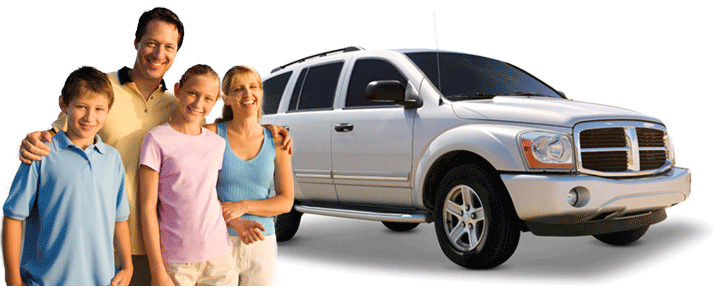Calculate the Cost of your Auto Insurance - FREE
Get Instant Rates. It's fast, easy and free.
Common Questions Asked in Car Insurance Calculator Forms
p>Shopping for car insurance isn’t what it used to be back in the early 90s. Everybody uses the Internet these days, and a car insurance calculator is an absolute must if you value your time and don’t want to leave money on the table. This article will present you with a list of common questions you may be asked when filling out the initial form.Personal information
What is your marital status?
Statistics show that married people are more responsible drivers. If you are married, chances are you will be billed less than single drivers.
Do you have children? If so, do they live with you?
Whether or not you have children and where they live (with you or on their own) makes a difference because of three reasons:
- Kids are risky drivers; if they live in your household and will drive your car, you will be billed more.
- Your household expenses are higher if you have children; you will be assimilated to a driver with lower income.
- Policyholders with children are, statistically, better drivers than single ones or married drivers who don’t have children.
Do you own or rent your house?
Homeowners are usually more responsible people in the eyes of the insurer. They either have high incomes or proved that they can save enough to buy a house. They are also less likely to vanish into thin air. As a consequence, homeowners pay less on car insurance.
Information about the assets you are going to protect
What is your household income?
The higher the percentage of the premium in the total incomes is, the more likely the policyholder is to miss payments or even attempt to defraud the insurer. If you earn $25,000 a year and have a policy that costs more than a month’s income, you represent a higher risk of non-payment than a couple who makes $400,000 a year and buys a policy of the same value.
What are your savings?
You should include money in the bank, other liquid assets, such as stocks or bonds, as well as retirement investing plans like 401K or IRAs. A person with lots of money in savings can usually afford to pay for some damage out of pocket, rather than lodging a claim, so you will be billed less. Also, statistics show that people with little to no savings also tend to be poor drivers, file more claims and may even attempt to commit insurance fraud.
What is your projected net worth when you retire?
How much do you think you are going to be “worth” when you retire, including your salary, savings, returns from investments and all corresponding interests? The amount should be realistic – if you are in your fifties, don’t earn more than $50,000 a year and don’t have more than $100,000 in your bank account, it’s kind of hard to retire a millionaire.
What is your FICO score?
Not all insurers ask for the credit score. It’s alright to approximate, you don’t have to get a report from a credit bureau just to apply for insurance. Don’t try to lie – once you give the insurer your social security number, they will get it themselves. You should give your best guess if you want the estimate quote to be as close to the final one as possible.
Information about the vehicle(s) you want to cover
Do you own or lease the cars you are going to insure?
This piece of information does not add up towards the coverage cost. However, all insurers introduced this in their questionnaire because lien holders impose a level of coverage that is way above the minimum state-mandated limits (often full coverage with 100/300/100 liability) and customers aren’t always aware of the requirement or just forget to mention it.
Where do you keep your car(s) when they are not in use?
Do you keep your vehicle(s) in a closed garage or are they parked in the street? Do you often leave your car(s) in an area that is known for a high incidence of vandalized and/or stolen cars? It goes without saying that if you live or work in a high-risk area, you will have to pay more for insurance.
Do you have access to alternative transportation?
If your car breaks down, do you have a second car you can use for the time it stays in service? If not, you will be putting a major time pressure on the insurer and the repair shop, who might do a sloppy job, and you will file a claim again soon. If you have more than a car in your household, even though your spouse or kids drive it, you will want to answer “yes” to this question. Otherwise, you may opt for rental coverage – it only costs a few dollars per month and will come in extremely handy when you are in a tight spot.
Do your cars have a history of breaking down unexpectedly?
Has any of your cars died in the middle of the road? If it has major technical issues, you are likely to be filing more claims, hence you will be billed more. It might pay up to join an auto club that offers towing services and roadside assistance, or to buy a towing insurance option.
Do you live in an area where accidents with deers or domestic animals occur?
If so, it’s highly recommended that you get a comprehensive policy, because such incidents aren’t covered by a standard collision policy.


